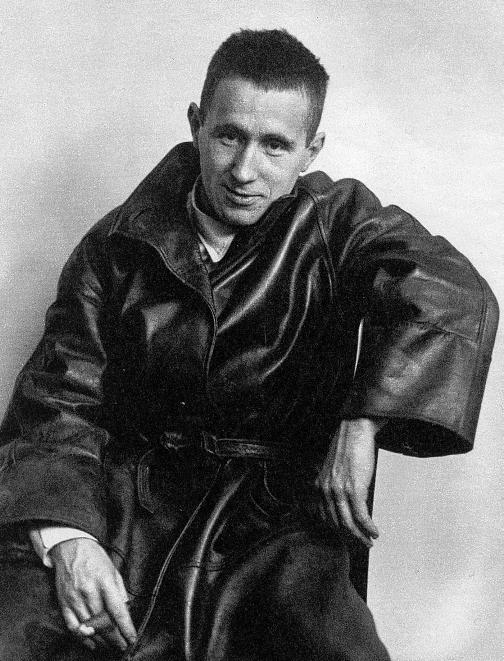Bertolt Brecht, Mother Courage and Her
Children
Biography

1898: Born Eugen Bertold Friedrich Brecht in Augsburg, Germany
- 1914: Constructs a puppet theater with friends, even charging
admission
- 1917-21: Studies Medicine
- 1918: Works in army hospital
- 1923: Baal
- 1924-33: Works with directors Max Reinhardt and Ewin Piscator in
Berlin; develops theory of epic theater; becomes a Marxist
- 1928: Threepenny Opera with Kurt Weill
- 1933-41: Exile in Scandinavia
- 1941-47: Exile in California; tried for Un-American activities
and moves to Communist East Germany
- 1941: Mother Courage and Her Children
- 1943: The Life of Galileo; The Good Woman of Szechwan
- 1948: The Caucasian Chalk Circle; Antigone
- 1956: Dies of a heart attack in East Berlin
Group Discussion Questions
1. What is Kattrin’s role in the play? (510, l. 285; 517, l. 39-95;
521, l. 30-40; 523, l. 115-25; 524, l. 230-70; 528, l. 70-75; 531)
2. What is Brecht’s critique of religion? (514, l. 140; 516, l.
300, 340; 526, l. 170)
3. If war is so horrible, why does it persist? What answer does
Brecht’s play give to this eternal question? (522, l. 45-50; 521, l.
15-40; 523, l. 120-25; 524, l. 230; 526, l. 135-40; 527, l. 345-50;
530, l. 25-40)
Brecht's Mother Courage and
Her Children
a) Discuss Brecht's theories of epic theater and alienation effect.
What narrative and theatrical devices does Brecht employ in Mother
Courage that illustrate his theories of drama?
b) The play was first seen by audiences in Zurich in 1941. What
elements of the play suggest an antiwar theme?
